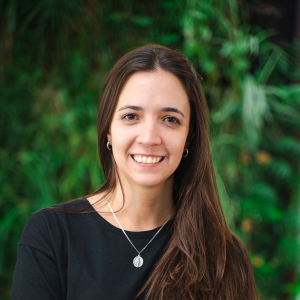Many former law students may recall their lectures on corporate law, where discussions often focused on the common will of companies as entities separate from their members. This concept, often referred to as "legal personhood", has taken on a new meaning with the advent of smart contracts. These smart contracts introduce a new form of automating agreements through code, potentially prompting a shift in the traditional mechanisms of internal organization within companies.
The Acronym "DAO" and Its Meaning
The acronym "DAO" stands for decentralized autonomous organizations. Despite initial misconceptions that this may refer to self-managing, intelligent organizations akin to artificial intelligence, DAOs are quite different. To draw an analogy, law students may remember feeling a similar confusion when first learning about the concept of the legal person.
In essence, the Bitcoin network, being the first generation of blockchain, could be considered the first DAO. This is attributed to the network's consensus mechanism with preprogrammed guidelines, such as halving and limited monetary issuance mechanisms. Moreover, it operates autonomously, with no central bank, private company, or government controlling it. It also relies on a distributed consensus mechanism among its various nodes.
In 2014, Vitalik Buterin provided the first definitions of Dapps (decentralized applications) in an enlightening article titled "DAOs, DACs, DAS, and more: an incomplete terminology guide."
Differentiating DAO and DAC
In this guide, Buterin distinguishes between Decentralized Autonomous Organizations (DAO) and Decentralized Autonomous Corporations (DAC). He addresses a common concern about DAOs and DACs, explaining that they aren't threatening AIs that make human workers redundant. Rather, Buterin states, "The ideal of a decentralized autonomous organization is easy to describe: it is an entity that lives on the internet and exists autonomously, but also relies heavily on hiring people to perform certain tasks that the automaton itself cannot do."
With this clarification, we can differentiate between DAOs and DACs. DAOs typically pursue non-profit goals, like promoting sustainable economies or humanitarian causes. DACs, on the other hand, are organizational structures that could potentially emulate any company
Let's review some notable DAO initiatives.
The DAO: A Case Study
The DAO was a private initiative run by the company "slock.it" on the Ethereum blockchain.
The DAO conducted a successful crowdfunding campaign, raising approximately $150 million. Despite its fundraising success, it suffered a significant security breach involving its open-source software, which allowed for the diversion of funds to an entity separate from the main DAO. The attacker absconded with no less than approximately $50 million in Ether.
The attack caused a significant loss of trust in The DAO project and Ethereum as a software platform for similar initiatives. The incident was so severe that it led to a "hard fork" in Ethereum, resulting in the creation of Ethereum Classic (ETC). In simpler terms, network nodes voted to redirect funds to a new account where investors could exchange their DAO tokens for Ether. However, not everyone agreed with the decision to upgrade to a new software version, leading to a split from the Ethereum blockchain post-DAO.
The DAO situation served as a stark reality check for those advocating for an unregulated blockchain industry with the mantra "Code is law". Unfortunately, code can fail, and The DAO debacle was one of many instances where such failures negatively impacted numerous investors.
An interesting aspect to consider is whether the DAO tokens could be seen as "securities" by the SEC and, therefore, may have constituted an unauthorized issuance due to not being registered according to SEC procedures.
The SEC asserted that DAO Tokens were securities under its jurisdiction. The premise was that there was a promise of profit derived from the business management of others.
The SEC emphasized:
"The DAO was established by Slock.it and its co-founders with the objective of operating as a for-profit entity that would create and maintain a corpus of assets through the sale of DAO tokens to investors, which would be used to fund projects.
Holders of the DAO Tokens would share in the expected profits from these projects as a return on their investment in DAO Tokens. A DAO token granted the holder certain voting and ownership rights."
Maker DAO and its Relationship with DAI
You might have come across or used the stable cryptocurrency DAI. DAI is, according to Coinmarketcap, one of the stable cryptocurrencies with the largest market capitalization. The aspect that makes DAI intriguing here is its association with MakerDAO. Maker is a DEFI protocol operating on the Ethereum blockchain, enabling the functioning of the stable cryptocurrency DAI. Its origins can be traced back to 2015 when the Maker Foundation launched its governance token, MKR.
So, how are Maker, DAI, and DAO interconnected? Well, DAI is backed by a system of loans and settlements between DAI and Ether, prioritizing the over-collateralization of backing assets. As elucidated in its whitepaper, the protocol establishes voting systems for MKR token holders through "scientific governance" systems, deciding on essential issues such as fees and collateral, among others.
DAOs for Public Goods
During the well-known ETH Devcon event held in Bogota, Colombia, in October 2022, Griff Green discussed a sector with significant potential for future growth: public goods. He explained the issue of satisfying needs through public goods due to underperformance by governments, especially in less developed countries.
Platforms have been developed to showcase different projects and fund them through donations and tokens associated with these projects. Consequently, DAOs could serve as an organizational structure for promoting basic needs or assisting humanitarian projects worldwide autonomously and in a decentralized manner. This presents an ambitious mechanism that requires further development to become a scalable and secure alternative. For instance, Rather Labs offers blockchain services related to sustainable finance, such as the tokenization of carbon credits.
Griff Green, co-founder of giveth.io, among other projects, proposes a crowdfunding platform that helps projects not only receive investment but also develop as DAOs to manage their own economy.
Final Thoughts
Discussing DAOs remains an abstract concept for many, even within the crypto world. From the examples given, we can see that DAOs can have varied purposes and might not always be referred to as DAOs; they could be DACs. The evolution from a traditional society's consensus mechanism to a DAO, where voting power resides in token possession within a specific blockchain, is far from large-scale realization due to its technical and regulatory challenges.
However, this also presents opportunities for teams like Rather Labs that provide blockchain solutions and advise companies or organizations developing these initiatives based on smart contracts.
It's plausible to anticipate that the growth of the web 3 industry, coupled with a convergence between public and private sector actors, could foster a conducive development framework. This environment would enable these new organizations to flourish and bring about significant changes both within and beyond the web 3 ecosystem.
The information provided in this article is for educational purposes only and should not be construed as investment advice or financial recommendations.






%204.svg)










